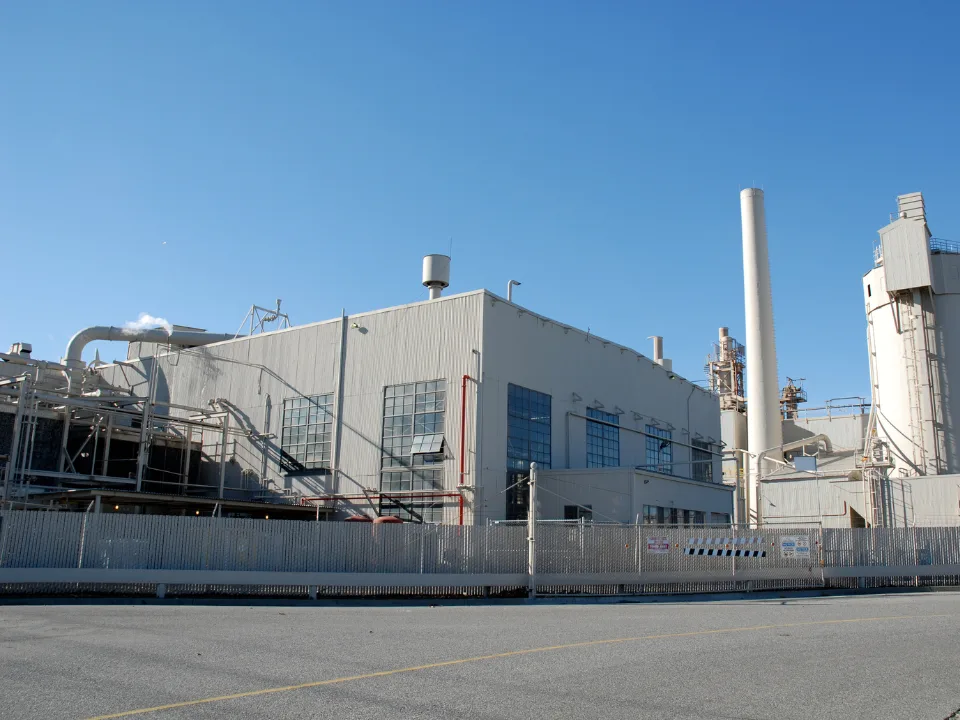Private Credit Targets Void Left By Banks
Direct lenders, who are already significant participants in leveraged buyout financing, perceive a remarkable opportunity to capture a greater portion of the market.
Together with
Good morning. It appears even bulge-bracket banks are taking their licks right now. And as they reel from poorly timed loans, private credit has swooped in to take their place. Meanwhile, the ultra-wealthy are scooping up properties at bargain bin prices.
Looking to diversify your portfolio with private credit investments? Check out today’s sponsor, Percent.
ARROUND THE WEB
🎧 Listen to this episode of the Common Area as Xander Snyder of First American joins them to discuss the impact of demographics, fundraising, and increasing supply on the markets.
🖥️ Watch to find out where CRE will be this year as the world faces global economic uncertainty. While an uptick seems unlikely in the near term, ConnectCRE is optimistic about the long-term outcome.
POWER STRUGGLE
A Once-in-a-Generation Moment for Private Credit Titans

As Wall Street struggles with underperforming buyout loans, direct lenders are taking advantage of rare opportunity to increase their market share.
Stepping into the fray: Wall Street’s leveraged finance desks have been hit hard by billion-dollar losses due to poorly timed loans, resulting in a significant reduction in lending. This has left the door open for direct lenders to grab a larger market share in the leveraged buyout financing industry and maintain it for the long term.
Their strategy: Private equity firms such as Apollo Global Management, Blackstone, HPS Investment Partners, and Ares Management are targeting larger loans that were once exclusively reserved for banks due to their immense size. They are among the firms offering $5.5 billion to finance Carlyle Group’s acquisition of a 50% stake in Cotiviti Inc., which is set to be the biggest transaction of its kind. Additionally, they are reportedly working on a $5 billion financing for another leveraged buyout deal, according to anonymous sources.
Between the lines: “Multibillion-dollar M&A deals can now credibly consider private credit as an option,” Mike Patterson, a governing partner at HPS, said speaking about the market broadly. “Even as capital markets re-open, we’d expect private credit to keep 10% to 25% of those deals that would have traditionally gone to public markets.”
➥ THE TAKEAWAY
Why it matters: This strategy marks a significant shift in the debt financing industry and could potentially lead to Wall Street losing out on fee-rich financings that previously generated a third of their investment-banking revenue. Moreover, experts suggest that if private equity firms become increasingly reliant on direct lenders, it will be even harder for banks to win back mandates.
SPONSORED
Power Growth with Private Credit
Leading investment firm KKR recently published research stating that fund managers can benefit significantly from shifting assets into private credit.
Why? Because this asset class comprises privately negotiated, non-bank loans, deals can command much higher interest rates and offer largely uncorrelated returns vs. traditional assets. And like real estate, private credit can offer predictable, stable income.
But unfortunately, most of us can’t call our broker at Goldman and say “hey get me into private credit” — that’s where Percent can help.
Their private credit marketplace provides accredited investors access to a wealth of high yield (up to 20% APY), short duration offerings with investment minimums as low as $500.
Percent boasts a proven track record in alternative investments, averaging a 14.8% yield last year, to get exposure to the $7T asset class of debt financing.
Ready to delve into the world of private credit? CRE Daily readers can earn up to $500 on their first investment with Percent.
BUYING BOOM
World’s Wealthiest Take Advantage as $1T Property Market Craters

Bloomberg
While many are pulling their hair out over a tepid market, the ultra-wealthy are taking advantage of the decline in property values. In fact, they’ve been the most active CRE investors in recent months.
Fire sale for billionaires: Ultra-high net worth individuals (UHNWIs) and their investment firms smell blood in the water and are going in for the kill. For example, Zara founder Amancio Ortega acquired at least 10 CRE properties worth $2B across North America and the UK last year. Meanwhile, institutional investors scaled back at the end of the easy-money era last year.
Buying spree: In 2022, UHNWIs invested $455B in commercial real estate, leveraging their smaller debt profiles and longer investment horizons. This group emerged as the most active buyers in the sector for the first time.
However, the report stated that there was an 8% decline in the total amount of property investment made by the rich compared to the previous year when demand surged after Covid-19 lockdowns. Institutional firms also experienced a 28% decline in volumes during the same period.

Between the lines: “Private buyers are taking advantage of the ongoing repricing of assets and stronger currency positions,” Alex James, Knight Frank’s head of private client advisory, said in a statement. “This trend is set to continue with private investors seeking liquid wealth preservation options.”
➥ THE TAKEAWAY
Where the money goes: The report highlights how the ultra-rich prioritize long-term investments and use real estate to diversify their wealth. However, sales of commercial mortgage bonds are declining due to rising interest rates, affecting lending volumes.
During 2022, private investors concentrated on rental housing in commercial real estate, with the US receiving the most capital, specifically in New York for residential real estate transactions exceeding $25 million. Foreign investment was highest in London.
✍️ Editors’ Picks
-
Construction contraction: Retailer Lowe’s (LOW) released a disappointing Q4 sales report. Their net income for the quarter was $957M compared to $1.21B last year.
-
Landlord Thunderdome: Due to declining rent growth and increasing housing stock, 2023 could be the first year since the pandemic where owners will have to compete to find tenants.
-
Invigorating industry: High industrial space demand has hiked spreads between new and existing leases. The highest spreads are found in ports and logistics hubs, where demand is highest.
-
A little help from my friends: Philly has launched ‘Philly Rise’ to increase access to capital for developers of color. The goal is to produce 50 new residential units annually for five years.
-
Compass points South: Compass (COMP) posted a net loss of $158M for Q4, which was worse than Q3’s $154M but better than the $175M loss from a year ago.
-
The Neverending Story: According to BofA Global Research, the Fed may be continuing raising rates to almost 6% this year because aggregate demand is still too high.
-
New highs in New England: According to the Waller, Weeks, and Johnson Rental Index, the city of Springfield, MA has achieved the highest rent growth in the country at 14.73% YoY.
-
Overvalued offices: The Fed has recently warned that elevated valuations in the office market pose significant vulnerabilities to the US financial system.
-
Marriott on top: Marriott International (MAR) credits healthy travel demand for $5.92B in Q4 revenue. Still, the hotel chain is keeping full-year guidance broad.
-
Big Apple vs Big Ben: The cost of luxury housing in NYC has surged past London. Prices were up 2.7% last year. But Monaco remains the priciest residential market in the world.
-
JLL takes a tumble: Jones Lang Lasalle (JLL) saw profits nosedive 59% in Q4. Their solution: a plan to cut costs by $125M this year. Such a course likely means layoffs on the horizon.
-
When the mighty fall: The special servicing transfer of a $270.3M floating-rate mortgage secured by a 637-unit portfolio owned by Blackstone (BX) has analysts anticipating a distressed rate for CMBS loans secured with multifamily properties in NYC.
💼 Talent Collective
In partnership with Bullpen
Looking for a new role? CRE Daily has partnered with Bullpen to bring hand-selected, CRE freelance jobs to our readers. Join today for access to the below roles, as well as several other freelance openings.
-
Associate, Mergers & Acquisitions
💰 Part-time (Remote) 📍 Emphasis on real estate in the US and Europe
-
Director, Development
💰 Hourly (Remote) ❗️ Focus on mixed-use and industrial
-
Marketing Specialist
💰 Hourly (Remote) ❗️ Multifamily focus
Looking to hire? Connect with Bullpen
🤝 Deals & Dealmakers
-
Building up communities: Amazon (AMZN) has loaned developer Banneker Ventures $20M to begin the development of 193 affordable housing units in Prince George’s County.
-
Planting seeds: Oaktree Capital wants to raise $10B to fuel a new fund that will finance big private equity takeovers, hoping to fill the gap left by Wall Street and big banks.
-
Off to the races: Hillwood has purchased the California Auto Club Speedway for $544M. The property is set to be redeveloped into an industrial space with 6.6 MSF for logistics.
-
In the spotlight: Hackman Capital Partners continues its expansion into the film and TV sector, disclosing plans for the $1B redevelopment of the Radford production lot.
-
Trading hands: Cohen Asset Management purchased a portion of Peoria Logistics Park in AZ. The complex was completely preleased to Frito Lay, affiliate of former tenant, PepsiCo (PEP).
-
Going Green: Walgreens Boots Alliance (WBA) plans to sell a significant portion of its Deerfield, IL HQ. The remaining, smaller property is expected to become the pharmacy’s headquarters.
-
Leasing in LA: Design and production agency Thinkwell will be leasing a 14 KSF creative office space from Avalon Investment Co in Burbank, CA, for the next 5.5 years.
-
Expanding Inland Empire: CBRE Investment Management purchased 364 acres to be used for the first phase of the 6.6 MSF Speedway Commerce Center in Fontana, CA.
-
Time to sell: The loan secured against London’s most expensive house, The Holm in Regent’s Park, will not be refinanced, resulting in the property listing with a price tag of £250M.
-
Looking for labs: New York-based developer Tishman Speyer has filed a proposal to turn a parking lot in Boston, MA into lab space after buying the property from Gilette for $80M in 2021.
-
Apartment shuffle: Greystone has sold the Villas at Grove Crossing, a 94-unit housing development in Lantana, FL, to real estate tycoon Benjamin Mallah for $9.9M.
📈 Chart of the Day
US retailers are abandoning malls and large-format stores in city centers in favor of neighborhood locations that aim to serve the work-from-home generation.
🎁 Tell Friends → Get Merch
Share the CRE Daily with colleagues and friends, and when they sign up, you’ll earn exclusive content and free swag.
Or copy this custom referral link: https://newsletter.credaily.com/subscribe?ref=PLACEHOLDER

You currently have 0 referrals, only 3 away from receiving your next milestone: Back of the Napkin Multifamily Deal Screener.
What did you think of today’s newsletter? |





















